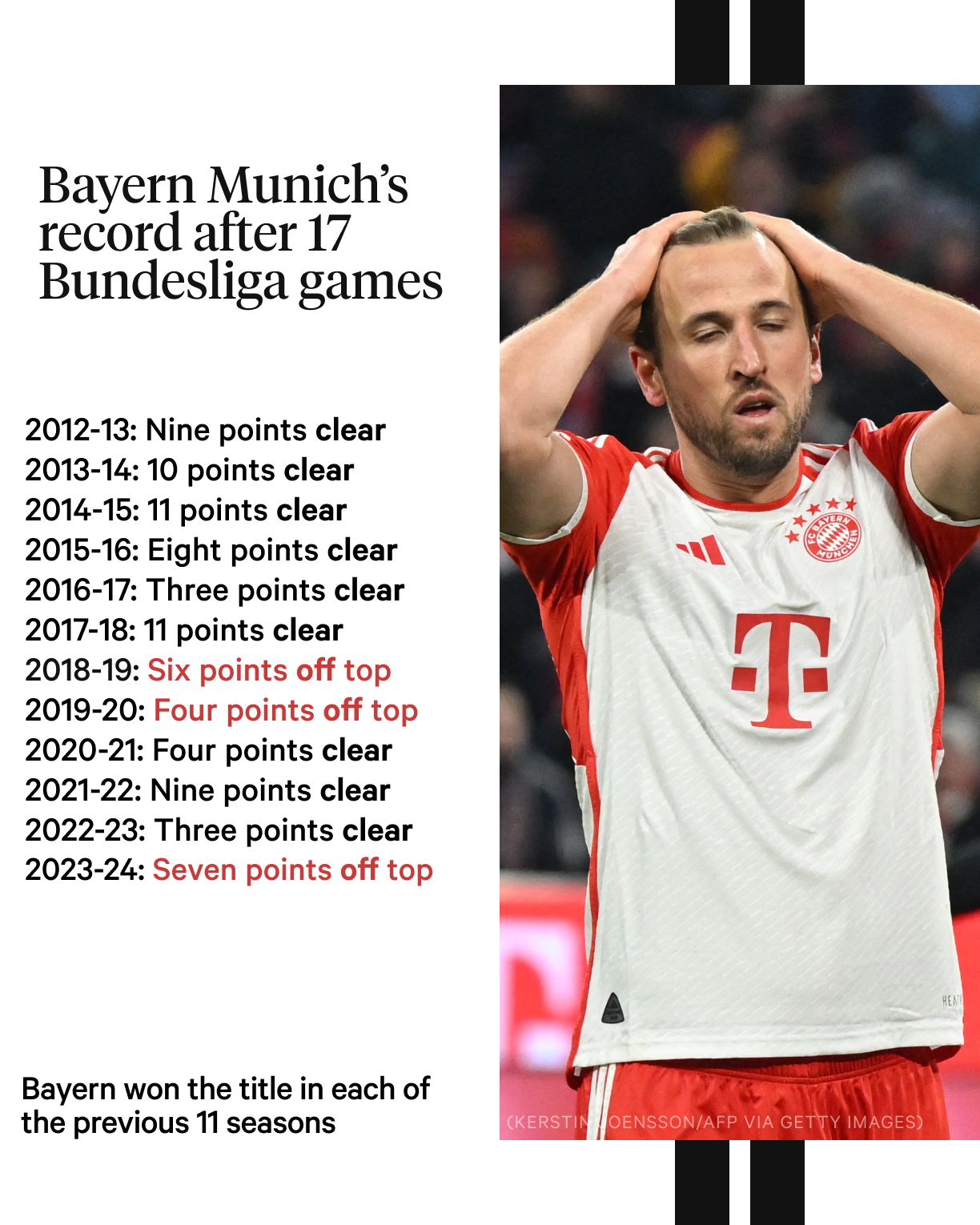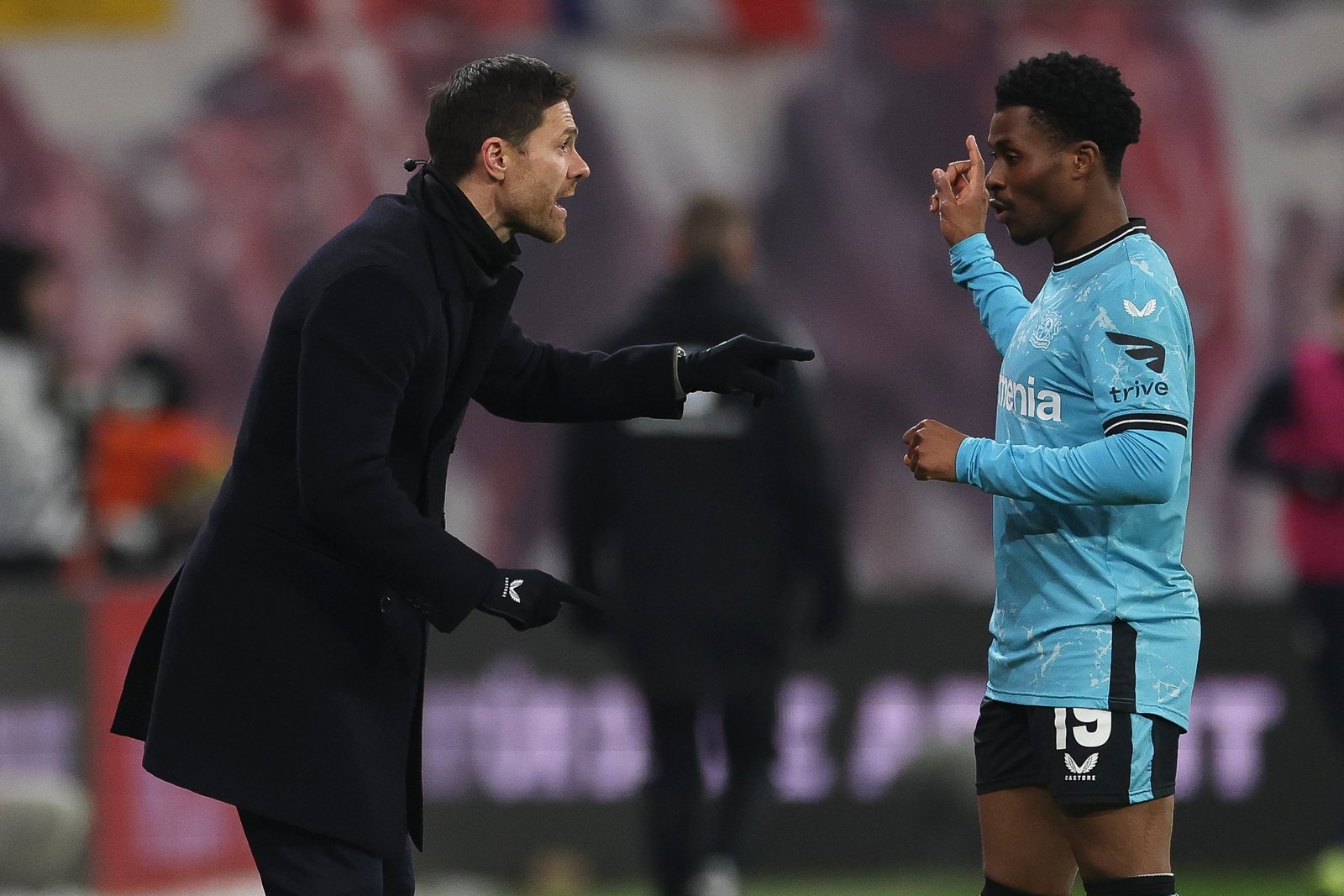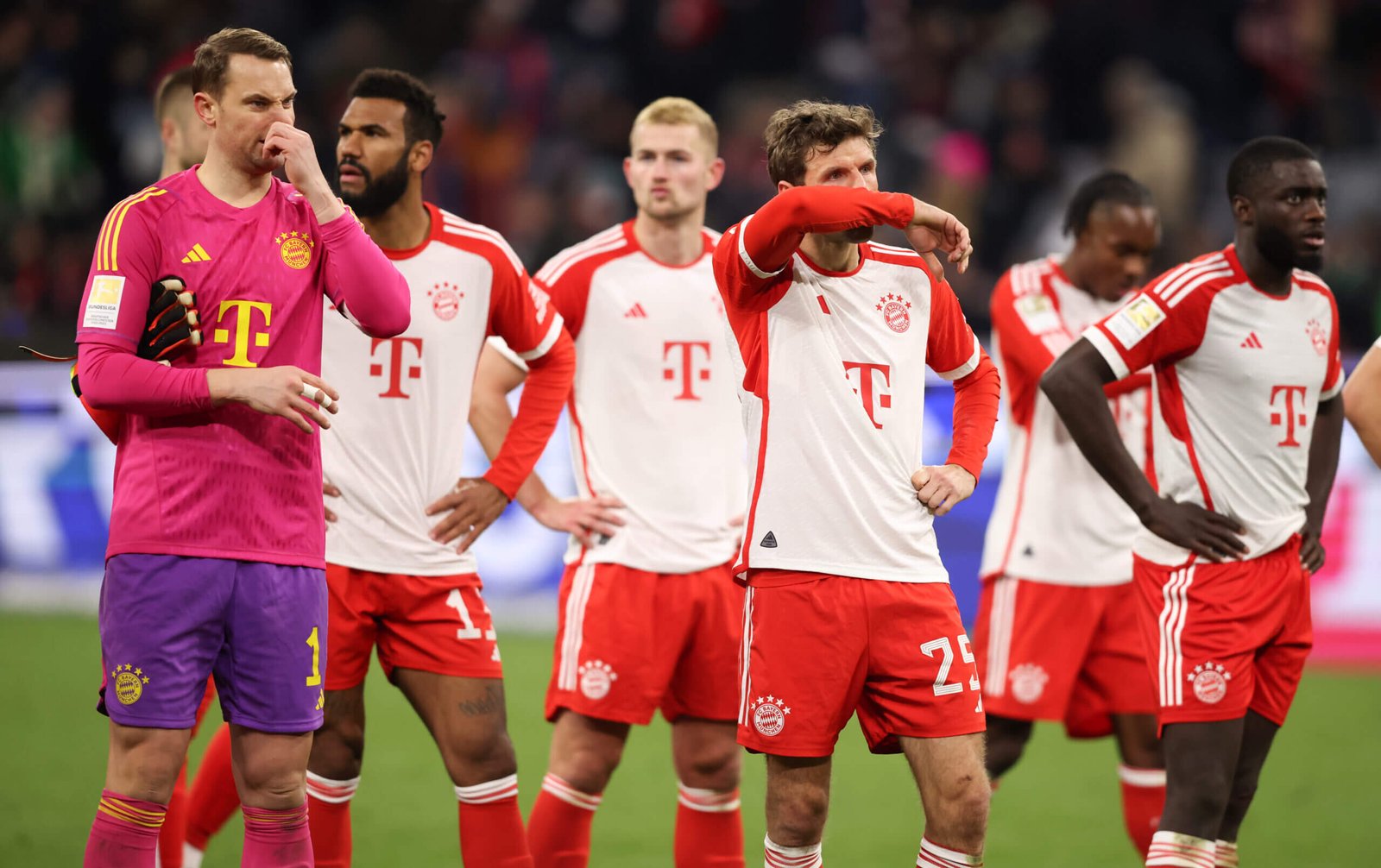Bayern Munich hadn’t lost a game against Werder Bremen since September 2008 but for many supporters, Sunday’s 1-0 defeat will have felt doubly familiar.
First, this was precisely the sort of game the German champions have messed up every season since time eternal — an uninspired, underpowered, overconfident non-show against well-organised, clever opponents covering every inch on the pitch.
For 70 minutes, Bayern sleepwalked towards defeat, mistaken in the belief that minimal effort would suffice. “We played boring football,” said CEO Jan-Christian Dreesen as he summed up the drab proceedings. After Mitchell Weiser, a former Bayern player, had given the visitors the lead, manager Thomas Tuchel switched to a risky 3-5-2 formation that, at last, delivered some goalscoring opportunities, even if the resulting dissolution of Bayern’s midfield had them teetering on ritualistic self-disembowelment. “Hara-kiri,” as Tuchel said. Twenty engaging minutes weren’t enough to win the match, though. “Bremen deserved the win,” Tuchel conceded.
(Stefan Matzke – sampics/Corbis via Getty Images)
Results like this aren’t a glitch in the matrix but a regular Bundesliga feature. Bayern’s dominance of the league since the mid-1990s — they’ve won the title in 19 of the last 25 seasons — has bred a sense of entitlement and complacency that’s been hard to shake off. “A good horse only jumps as high as it has to,” they say in Munich. And who can really blame them when they know deep down that losing the odd game on a chilly Sunday evening in Frottmaning hardly matters, when they can win the title with eight draws and five defeats (as they did last season) or even with 63 points (as in 2000-01)?
As much as every poor result is gleefully spun into crisis by the media, that level of opprobrium only pushes Bayern to sharpen up a little and win the next 10 in a row, before another anaemic outing sets off the cycle again.
It wasn’t just the manner of the embarrassment against Werder that was on brand, however, it was the timing, too. Tuchel’s praise for the work in last week’s warm weather excursion to Portugal and his subsequent disillusion with his team’s poor performance was darkly reminiscent of the see-saw years after the World Cup in 2006, when club boss Uli Hoeness used to hail every mid-winter trip to Dubai as “the best training camp ever” only to see Bayern win two of their six opening matches of the new year.
That post-Christmas drowsiness has also been a feature in more recent times. In the 2020-21 season, they lost their second game after the winter break (3-2 at Borussia Monchengladbach); in 2021-22, they lost their first (2-1 at home to Gladbach); this year, their second one again. And in 2022-23, three draws in a row after the league’s resumption felt even worse than a defeat.
They say that the lack of a winter break in the Premier League acts as a leveller. But maybe the winter break secretly fulfils a similar function in Germany, dulling Bayern players’ competitive spirit. An innate feeling of superiority, combined with private jet flights and 10 days in the Caribbean sun, doesn’t seem to be the best preparation for laborious sub-zero encounters against low-block sides running themselves into the ground. “Werder were hungrier than us,” midfielder Joshua Kimmich noted matter-of-factly, “we didn’t look like a team playing for the title today.“

The thing is, Bayern very rarely need to look like a team playing for the title in January. Ever since they quashed the Jurgen Klopp-led Borussia Dortmund rebellion 10 years ago, they’ve been adept at winning by default, so comfortable that even the odd extended shabby spell failed to matter.
Bayer Leverkusen’s superb run in 2023 (42 points from 16 games from August to December) didn’t cause too much trepidation in Bavaria during the winter break either, because history was on their side. Surely, ‘Neverkusen’ couldn’t keep up? Bayern, yet to hit their true heights despite scoring 49 goals and having Harry Kane at their disposal, would surely reel them back in at the end.
That cosy conception suffered quite a blow on Sunday, however. Xabi Alonso’s men won their second opening game of the year thanks to another late goal that was trademark Bayern, two parts determination and belief, one part luck. Seven clear at the top, unbeaten and virtually flawless after mopping up 48 points from 18 matches, Bayer are looking better than any team Bayern have ever come up against in a title race before.
What’s more, Bayer play with the very sense of humility and determination that the league title-saturated champions find so hard to conjure. Leverkusen are desperate to win the league while Bayern look like they don’t want to be inconvenienced by losing it.

Xabi Alonso’s Leverkusen are seven points clear (Maja Hitij/Getty Images)
On Wednesday, Tuchel’s side can cut the deficit to four points by winning their game in hand against Union Berlin. Correction: they need to. Leverkusen, they have belatedly come to realise, have vastly reduced their margin for error. Being merely at 85 per cent won’t be enough.
Will Bayern falter in the face of an unsuspected challenge, as they did during Dortmund’s heyday (2010 to 2012) or respond in kind to reach their full potential at last? In the coming weeks, Tuchel will find out what this team really is.
(Top photo: Stefan Matzke – sampics/Corbis via Getty Images)
Read the full article here


